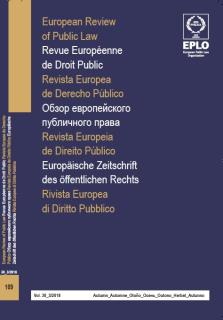
Administrative Law / Droit administratif
2017
Belgium / Belgique
Professeur à l’Université catholique de Louvain, Avocat au barreau de Bruxelles
Assistant à l’Université catholique de Louvain, Avocat au barreau de Bruxelles
Assistante à l’Université catholique de Louvain, Avocate au barreau du Brabant wallon
Belgian administrative law is undergoing, in 2017, significant changes. For the first time since the creation of regions and communities, is a federated government overthrown and replaced during its term of office. Due to the terrorist events occurred in 2015 and 2016, the municipalities of Belgium are given a tool of administrative policing in order to combat more effectively the phenomenon. Initiated in 2016, the transposition of European directives on public procurement contracts and concessions continues. The Council of State renders a landmark decision on the concept of a means of public order and rules, furthermore, that can be taken into consideration the prejudice of an environmental protection association which, in the name of a collective interest, makes a claim for the compensation of an ecological damage. The Court of Cassation renders, on the other hand, an important decision on the so-called “restorative compensation” litigation, recently entrusted to the Council of State.
Le droit administratif belge connaît, en 2017, des évolutions significatives. Pour la première fois depuis la création des régions et des communautés, un gouvernement fédéré est renversé et remplacé en cours de législature. A raison des événements terroristes survenus en 2015 et 2016, les communes de Belgique se voient conférer un instrument de police administrative en vue de lutter plus efficacement contre le phénomène. Engagée en 2016, la transposition des directives européennes en matière de marchés publics et de concessions se poursuit. Le Conseil d’Etat rend un arrêt de principe au sujet de la notion de moyen d’ordre public et juge, par ailleurs, que peut être pris en compte le préjudice d’une association de protection de l’environnement qui, au nom d’un intérêt collectif, revendique la réparation d’un préjudice écologique. La Cour de cassation rend, quant à elle, un arrêt important au sujet du contentieux dit “de l’indemnité réparatrice”, récemment confié au Conseil d’Etat.
* La présente contribution a donné lieu à une publication dans l’Annuaire européen d’Administration publique (A.E.A.P.), 2017. Elle est publiée dans la présente Revue avec l’aimable autorisation du professeur Delphine Costa (Université d’Aix-Marseille, France).





















